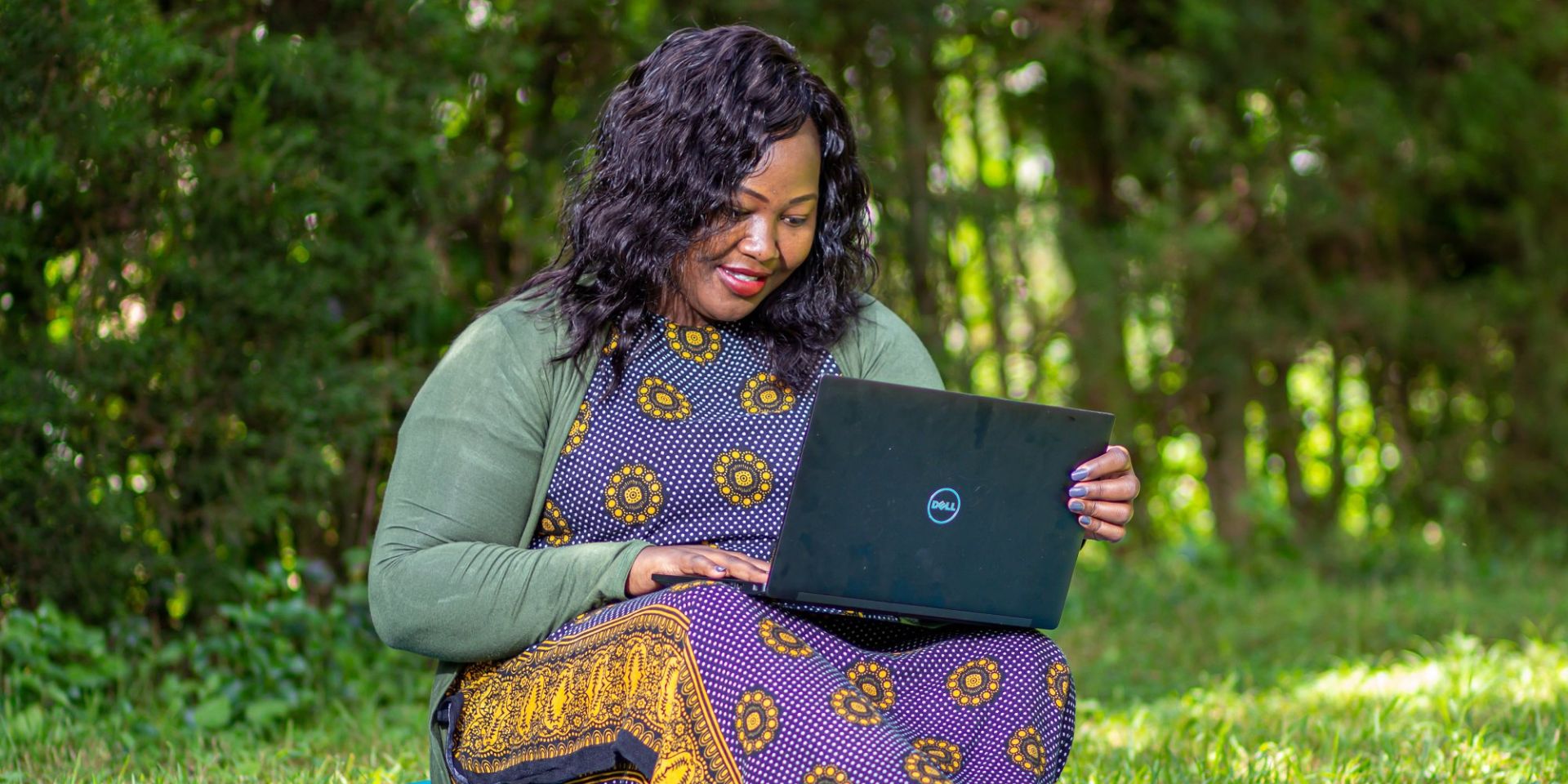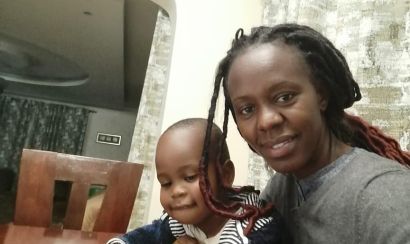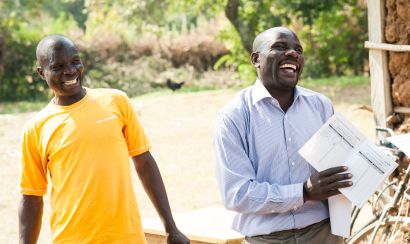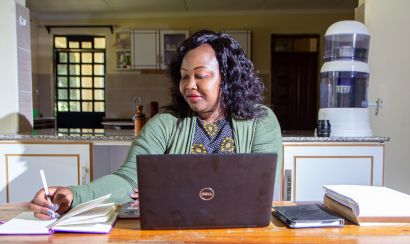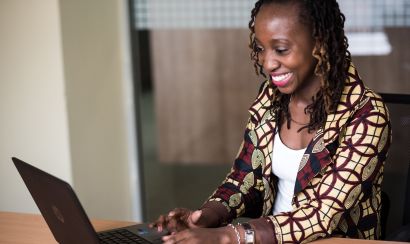Changing Careers During a Pandemic
March 2020 found Jacqueline Sambu dealing with two major life events — living through a pandemic and changing jobs. Jacqueline recently joined One Acre Fund as our Global Recruitment Associate, sourcing talent for the Kenyan program. We talked to her about her experience swapping careers, her fears in the context of the realities of COVID-19, her hope for a rewarding new job, adjusting to working from home, and her delight at being able to find fulfillment in the process, and working to create impact.
What is your day-to-day job at One Acre Fund?
The role of the Global Recruitment team is to attract passionate professionals to work at One Acre Fund. I'm responsible for talent acquisition and management — finding the right people for the right job — mainly for the Kenya program, as well as supporting sourcing initiatives in our other countries of operation. My typical day finds me prospecting for ideal candidates for our open roles.
What did you do before One Acre Fund? Is this a career shift or just a job change?
I worked with Liquid Telecom as a Human Resource Business Partner (HRBP). I supported senior leadership in ensuring that the human resources agenda was aligned with the organization’s overall business strategy. At my previous job, talent acquisition was one of many things I did; here it is my entire focus, which makes my role a specialty job.
What was your motivation for shifting jobs? Did the pandemic influence your decision in any way?
I started the process of changing jobs before the coronavirus broke out, so it wasn’t a factor for me. That said, I have had a long-running desire to be in an organization that works to improve the economic and social welfare of communities, so I was thrilled when the opportunity arose. I truly believe that the HR function is the lever that drives performance, which puts HR at the core of any organization. I also believe that the most critical aspect of the ‘People’ function is acquiring and managing talent.
Did you have any misgivings about making the change?
I had just one: what if I found the job to be underwhelming? I worried about moving into a less challenging role. Having worked in the fast-paced telecommunications sector, I wasn't quite sure I would enjoy or thrive in a less driven culture. Happily, I have been truly challenged, in more ways than I anticipated. Over the past five months, I have learned how to manage projects in highly effective ways. I especially enjoy being in an environment where innovation is embraced and nurtured. I have also been lucky to work with an incredibly supportive team, which also made my transition easy and enjoyable. I can honestly say I understand the choice of “Family of Leaders” as one of our core values.
How did it feel changing careers in the context of the pandemic? What was going on in your mind?
Frankly, it was a tense period for me. I was anxious about how long the organization would sustain itself and us, especially with the economic deterioration the pandemic brought, which had firms offloading employees. But it also made me a bit more reflective and, inevitably, grateful that my career was thriving during the job-sweeping tsunami we have witnessed this year.
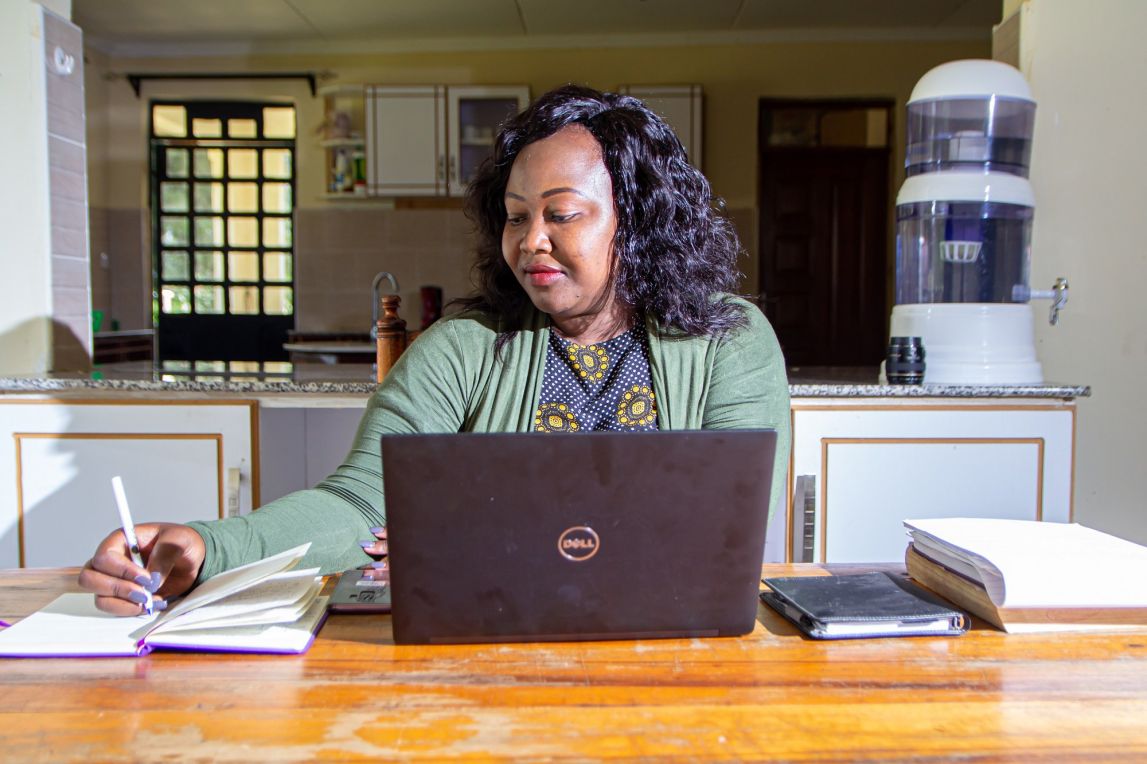
What trade-offs did you weigh given the uncertainty of the times?
Besides my transition fears, I didn’t have any. The opportunity to work at One Acre Fund, to be a part of its mission to uplift smallholder farmers as national and regional constituencies, is one I am still grateful for. Suffice it to mention too that I had a wonderful candidate experience during recruitment.
We're happy to hear that because we’ve received criticism on our candidate experience in the past and are working to improve it. What made it "wonderful" — as you say?
This is a very interesting question considering I am now part of the recruiting team. I liked that my exercises mimicked the actual work I am now doing. It thus helps that our recruitment process adequately prepares candidates for their future roles.
Speaking as a recruiter, the job application process may be demanding, but then, so is the actual work. My take is this: ours is a business model. We offer farm inputs on credit, facilitate the logistics around the planting season, and get repaid once everything is in place. This sounds pretty straightforward, but our processes require a lot of well-thought-out back-end strategies. We need the best talent to continue to make our sophisticated operations seem simple, which is what our recruitment process is tailored to get. I don’t know that there is a way around it.
What’s been the hardest part of starting a new job during a pandemic?
I still have to consult colleagues to get information or ask questions about some aspects of my work, all of it virtually. I believe I would have “got it” much faster if I had undergone a physical induction process. I have not met any of my colleagues in person, and as someone who deals with human resources, this is almost sacrilegious! I miss in-person workplace interactions.
What can organizations do to support new employees during this time?
I think One Acre Fund has done a great job — if I could be allowed to use myself as a case study. Everything was well-coordinated from the start to the end of my probation. It has made it apparent for me that having a robust onboarding process is very important. It also helps that there are weekly check-in meetings with managers and regular health-check team meetings to find out how everyone is doing. These employee wellness programs are ones I’d recommend for other organizations.
What are you doing to stay connected with the organization’s goals and mission while you’re away from the physical workplace?
I read a lot about our operations on our website. There is a lot of material to keep one engaged for days on end. We also have a Field Officer-buddy program — it pairs office and field staff as a way of keeping us grounded to our mission and values — which has been a great way of connecting with field staff. Finally, I have taken part in a few field interviews, which have given me a glimpse into the impact that One Acre Fund continues to have in supporting farmers and growing rural economies.
People are aware of the extraordinary work going on in healthcare right now, but we are sort of background enablers at One Acre Fund, for equally vital work. How do you think about your work in the current context?
One Acre Fund helps farmers to produce food for self-sustenance, and millions of other families. My work, as an enabler of smallholder farmers, is all the more critical at this time. I must ensure that we hire the best talent in the fastest way possible to ensure food systems do not suffer disruptions.
What is the most important lesson you learned while changing careers during COVID?
The first is that there is no substitute for resilience. A lot of things happened simultaneously as I took on my new role. Besides having to onboard remotely, COVID brought with it radical revisions to the conventional way of working, having to absorb an information overload which brought confusion, and a lack of person-to-person interactions. From the start, I decided to look at it as an opportunity to build my resilience. I mustered optimism and focused more on my job, rather than dwell on the anxieties around the pandemic. That strategy worked wonderfully. I found that I had a lot of time to work on my workplace fluency by reading lots of organizational resources and material that helped me to understand One Acre Fund more holistically, and my role within its mission. In retrospect, if I had chosen to look at my situation as a challenge to overcome, I probably wouldn't have made as much progress.
I have also learned the value of a supportive team. My colleagues have been helpful from the beginning. They went out of their way to assist me as I learned the ropes and found my footing.
